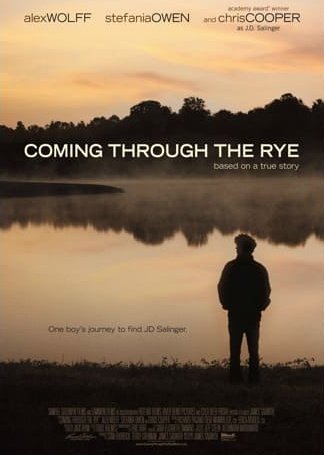What can independent filmmakers do to attract film investors, enhance their bottom line, and actually MAKE MONEY from their indie films?
It's no secret the film business is constantly changing, evolving and basically, trying to keep up with the times. A lot of pundits are painting a bleak picture for the state of independent filmmaking and there's a big do-it-yourself push. DIY filmmaking. DIY distribution. DIY film marketing. If independent filmmakers only listen to film finance gurus, it's a wonder any independent film could attract film investors.
Everyone is shouting, "There is no money!" and indie filmmakers are scrambling to social media like YouTube, Facebook and Twitter to launch their films and make money outside of Hollywood. But the truth is, there is money available.
Independent filmmakers looking to attract film investors and secure film financing and distribution must combine these two aspects and make smarter choices for film financing, film distribution, and film sales.
Here are Ten Things Independent Film Makers Can Do Right Now To get film financing, secure film distribution that makes money and attract film investors, larger than typical crowd funding initiatives deliver.
1) Use Tax Incentives and Subsidies - Section 168 (k)
There are both domestic and foreign tax incentives. A tax incentive is like getting free money, so making a film in today's economic climate without utilizing available film tax incentives is like throwing money away. Almost every city/state/country has incentives luring you to film in their location. Example: www.nyc.gov/film.
In particular, research and master the application of the US Federal Section 168 (k) (formerly Section 181) deduction. This deduction helps accelerate ROI and attract film investors. In 2018, the Tax Cuts and Jobs Act of 2018 (TCJA), reinstated a policy, Section 168(k), with similar tax effects to Section 181 Film Tax Deduction, which had been on and off again from 2004 through 2016.
Section 168k provides a 100% tax deduction for the investor in a motion picture, television series or live stage production, shot in the US, during the first year of distribution. There are other changes to the new law, such as caps being eliminated, the year in which the costs can be deducted (when the production is 'placed in service,') and in what form the deduction is taken, like depreciation. In order for your investors to take the deduction you must qualify the film under Section 168(k). Please consult your attorney or tax expert on exactly how this new law applies to your investors and production.
Updated tax incentives are always included in our Movie Investor Package.
2) Transform The Film Into Products
Adding merchandising to the recoupment strategy will definitely appeal to and help attract film investors. Every film has this potential whether it is T-shirts, customized USB flash drives, baseball caps, or even the sale of assembly-line props from the film. For the film, Resurrection of Serious Rogers, a store-bought T-shaped knife was used in the film during an assassination scene. Enough fans asked about the knife that the filmmakers ordered a case of knives and sold them on the film website at a premium mark-up. Some filmmakers offer a CD of the film's original score. Showing your entrepreneurial spirit will impress and attract film investors and make then more likely to trust you with their money.
3) Identify Your Secondary Niche Market
Even commercial Hollywood studio films have smaller niches. A horror film can also fit into a secondary niche like "outer space." Bring the two audiences together to gain greater exposure for the film. Greater exposure can easily translate into higher DVD and VOD sales
4) Be Sure Your Film Has Commercial Appeal
In this case commercial means marketable and most importantly, "sell-able". Film projects in the planning stage should stay away from certain genres like drama and romance. There's nothing inherently marketable about a "drama" unless there's a celebrity appearing in the film. However, an action drama has something sellable and can attract film investors.
5) Keep Your Budget as Low as Possible
The old adage is true: producers have to make back 3x the amount of the film's budget before they turn a profit. For independent films, there is more leeway in the numbers, but this is a good starting point. Thus, the lower the budget, the less money the producer has to earn before he turns a profit. Filmmakers must find their film budget's sweet-spot, which is determined by approximating sales in various distribution channels. Low budgets are far more appealing than padded ones when trying to attract film investors. More Info: Film Budget Template
6) Maintain Excellent Production Quality
If the film looks great, fans are more apt pay to watch it. Newer low cost cameras are fantastic tools for the low-budget indie. Even a novice filmmaker can look like an experienced DP with Canon DSLR cameras. Production value extends to production design as well. Spend a few dollars buying trinkets at the local hardware or dollar store to make locations look awesome. If these trinkets are stored properly they can be used over and over again, and will eventually pay for themselves.
7) Use Actors When and Where Possible
This is no-brainer. Use trained actors before using an untrained neighbor or relative. If an untrained actor must be used, find one with a great personality or exotic character. Consider casting "against type." Find great movie talent here: Find Free Actors for Independent Film
8) Use Celebrities When Possible
A celebrity doesn't have to be a so-called A-list actor to add value to a film project. Lots of actors earn a great living working on so-called B-movies. Also, singers, performers and local celebrities can add value to the film, especially for foreign pre-sales. If the money is available, it's best spent putting recognizable faces in the film. Hint: lots of U.S. TV actors are struggling for their big break in film. Many of these actors are well-known in Europe and Asia and help to attract film investors.
9) Use Foreign Pre-Sales
Pre-sales can be a conundrum for the inexperienced filmmaker. To most filmmakers it doesn't make sense that a distributor would give money for a film that isn't even made yet. But here's where items 1-8 come in handy. Make a film that is commercial (i.e. marketable), with celebrity actors and a smaller budget, that appeals to a distinct niche (target audience), and takes advantage of tax incentives. These films are help to attract film investors and distribution companies.
Here's an example of how pre-sales might work: a UK distributor gets a call from a DVD reseller about a growing interest in action-thrillers with female actors and wants to buy one. The distributor gets wind of a US filmmaker's script and offers to help fund the production in exchange for exclusive rights to distribute the film in the UK. The distributor puts up 30% of the budget. The US filmmaker goes to a Los Angeles production company with a promissory note from the UK distributor. The Los Angeles production company puts up another 45% of the budget in exchange for North and South American distribution rights. The filmmaker then goes to a bank that specializes in film funding loans and gets a loan for the balance, or she may approach private equity investors and try to attract film investors for the balance.
10) Invest Time in Script Development
If a filmmaker wants to be an artist who makes films that only a few can enjoy that filmmaker has no business trying to attract film investors. Film investors are not in it for the art - they invest because they want to make money. A filmmaker needs to spend as much time developing their scripts as they do marketing it on social media. This means paying for a critique, getting an established industry professional to read the script, and rewriting it until it pops! There are many screen writing contests that offer film critiques. Filmmakers get a chance to win a prize package and get guaranteed feedback.
11) Special Reserve the Right to sell DVDs
Many distributors want exclusive rights. However some will allow the filmmaker to sell the film from a filmmakers personal website or from another site. This can put added money in the filmmakers pockets as well as help the filmmaker build a fan-base.
Stick to these items and you will significantly increase your odds of being able to attract film investors. There will always be money available and money to be made for professional quality films.
Reproduced, with permission, by Angelo Bell, Independent Film Maker. Angelo Bell is a writer, director and an independent producer in Los Angeles whose professional goal is to develop and create engaging and commercially viable, low-budget films.
Angelo is an award-winning filmmaker with two best-in-festival wins for El Ride (as producer) and Until Next Time (as consulting producer and editor). In 2007, he set a record at the Los Angeles International Shorts Festival when four of his films were accepted.
Back to Top of How Attract Film Investors
How to Find Film Investors
Film Investor Guide
- Film Investor Ultimate Guide (For Filmmakers)
- Film Investor Primer (For Investors)
- 10 Things You MUST Do To Attract Film Investors
- Preparing for Film Investors
- Film Investor Business Plan Tips
- How to Find Film Investors
- Pitching to Film Investors
- Working With Film Investors
- Film Investor Tools & Templates
FilmProposals - 2025 Financing Toolkits & Bundles
DIY Toolkits, Legal & Finance Service Bundles
See All Financing Toolkits, Financing Bundles & Film Legal Packs
Gold Toolkit
DIY Templates- Financing Manual
- Financial Projections Template
- Business Plan Templates (Narrative & Documentary)
- Investor Agreement Outline
- Film Budget Template
- Indie Film Pitch Deck
- Custom Indie Film Database
- BONUSES (MPA Market Stats, Dealmaking, Investor Tips, ++ )
- Regular Price $303, Save $124
Gold Toolkit + Financials Bundle
Most Popular- Full Gold Toolkit
- + Professional Sales Projections & Investor ROI (10 Films)
- Regular Price $802, Save $103
Platinum Bundle
NEWEST!- Full Gold Toolkit
- + Professional Sales Projections & Investor ROI -10 Films (Reg $499)
- + Film PPM Investor Agreement (Reg $499)
- + Filmmaker Legal Pack (Reg $129)
- Regular Price $1430, Save $231
While our FilmProposals Bundles & Toolkits will save you hundreds of hours with prewritten text and templates and speed up your learning curve by showing you how to complete complicated financial projections, there is still a lot of information to process. We designed this FREE Film Business Plan Course to be sent once per week to break the process of writing your business plan into manageable pieces, and to keep you accountable and focused.
FilmProposals Tools and Templates
- Film Financing Bundles
- Film Financial Projections Template
- Film Business Plan Template
- Documentary Business Plan Template
- Film Financing and Investor Manual
- Film Budget Template
- Indie Film Pitch Deck
- Film Investor Agreement Outline
- Film Investor Tip Sheet
- Filmmaker Legal Pack
- Indie Film Database
- FREE Business Plan E-Course







